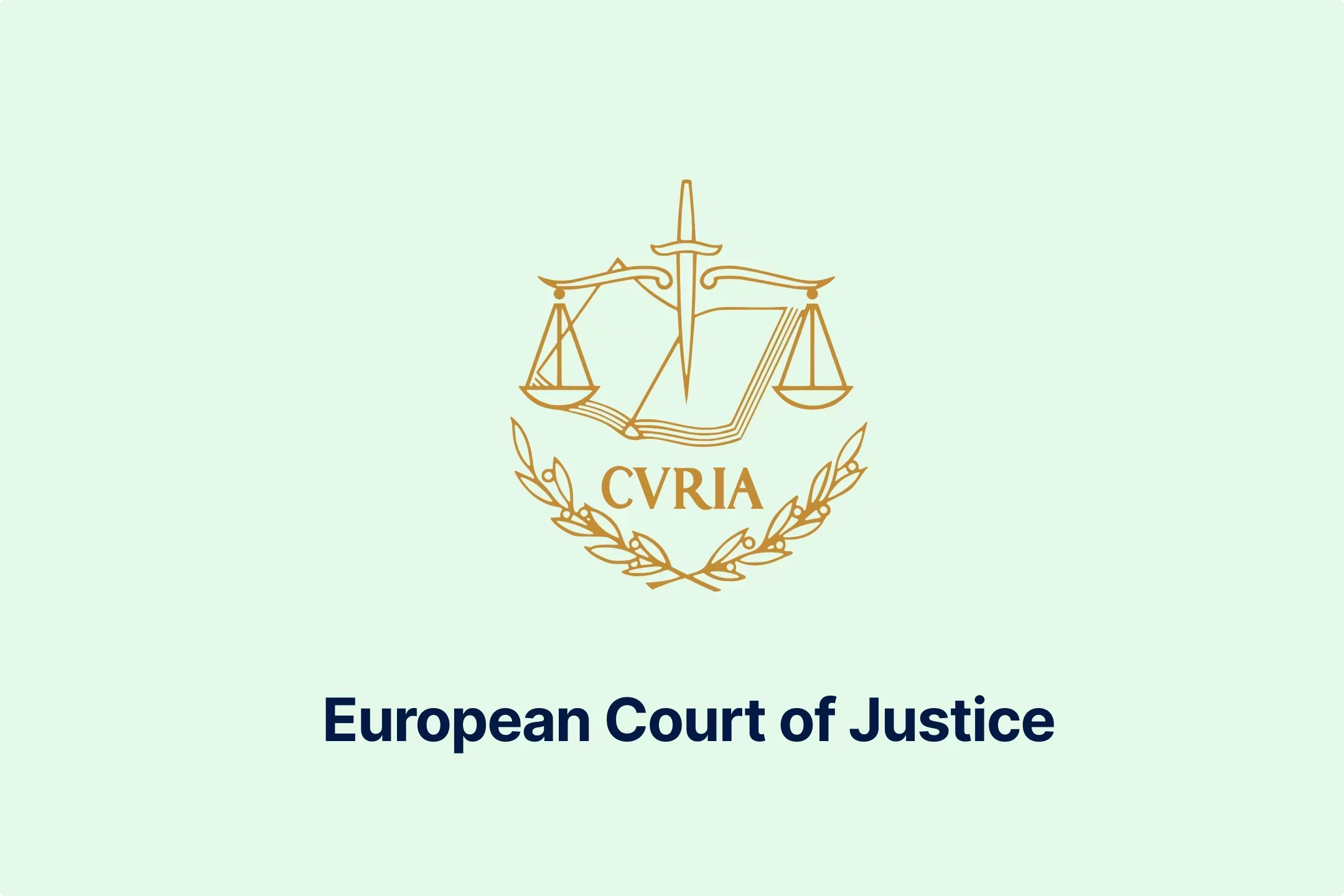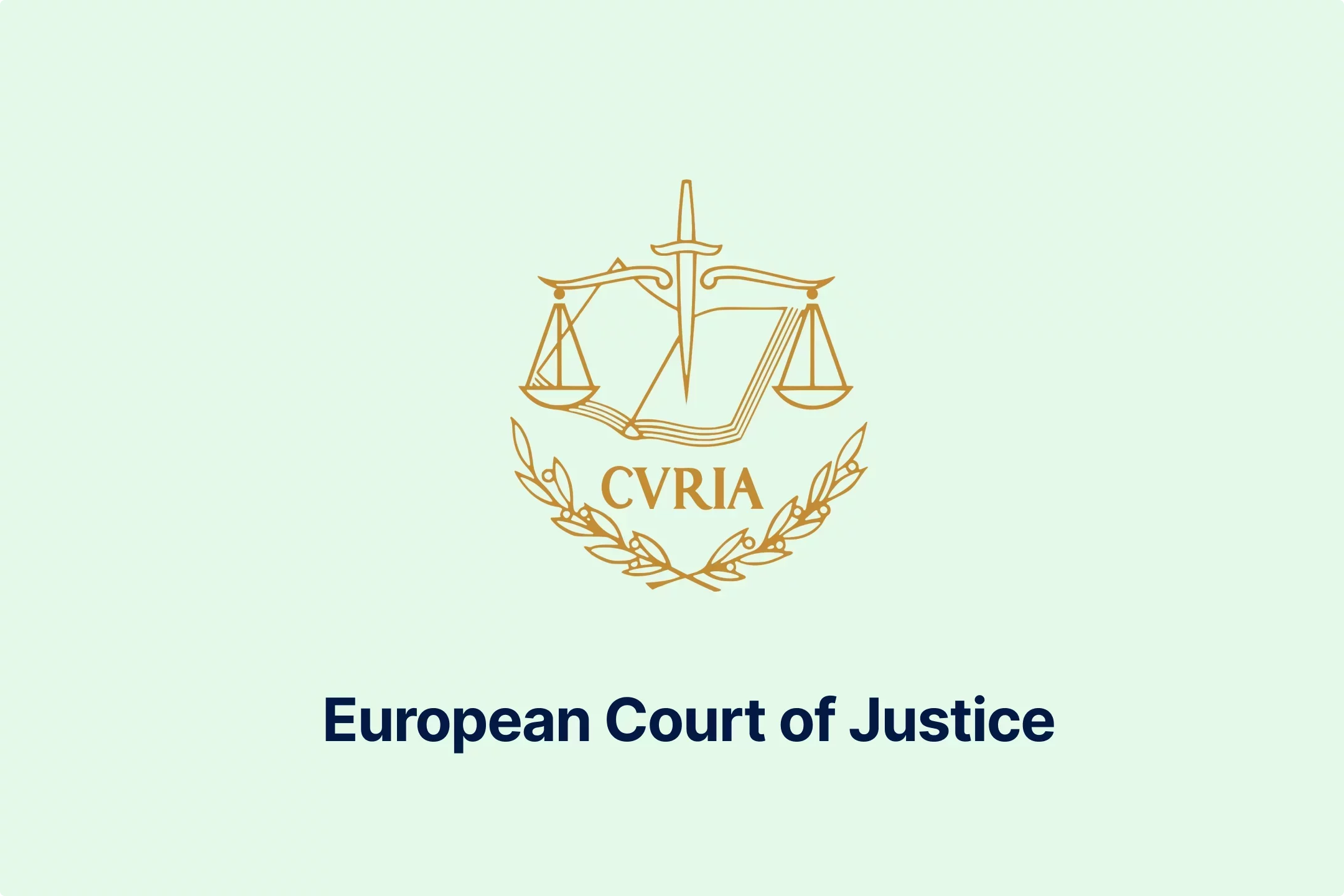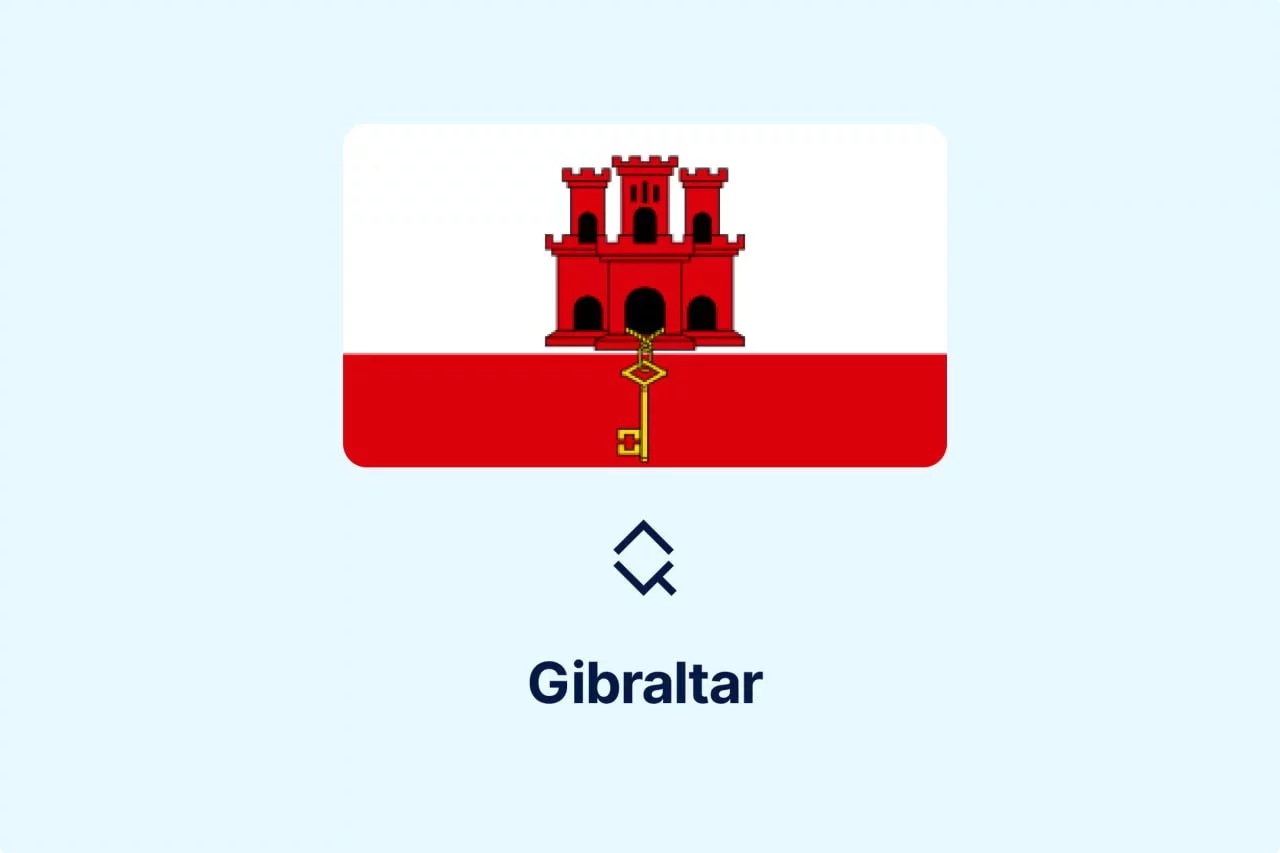ECJ Case C-714/20: Import VAT Liability for Indirect Customs Representatives Explained

ECJ Case ECJ C-714/20 refers to a dispute between the Italian-based company U.I. and the Italian Customs Agency over a due import VAT. The U.I. acted as an indirect customs representative to two other Italian companies, and the Customs Agency found U.I. to be jointly liable for taxes owed by these two companies.
The Italian government also contributed to this case by declaring it inadmissible, which adds to its interest and uniqueness.
The case and the decision include the interpretation of the EU VAT Directive and Customs Code and explain their interconnectedness and influence on each other.
Background of the Case
In 2017 and 2018, U.I., the company established in Milano, received two tax notices from the Customs Agency (Customs), which reassessed 160 import declarations and requested that U.I. pay EUR 959,607.46 plus interest for corresponding import VAT.
During the reassessment process, Customs determined that U.I., as the indirect customs representative of the importing companies A. SpA and U.C. Srl from Rome, was liable to pay the stated tax with those companies under Articles 77 and 84 of the Customs Code.
Moreover, Customs determined that the declarations of intent attached to those import declarations were unreliable, based on the incorrect statements that the importing companies were established exporters. Because companies did not conduct any transactions that would qualify them for VAT-free purchase quota, they could not claim VAT exemption on their imports.
U.I. appealed against two tax notices before the Provincial Tax Court in Venice, arguing that stated Articles 77 and 84 of the Customs Code do not apply to VAT. Furthermore, the U.I. stated that Italian regulations do not define indirect customs representatives' jointly and severally liability to the importing company to pay import VAT. Additionally, it claimed that this violates Article 201 of the EU VAT Directive.
In its answer to the appeal, the Customs requested that the deciding Court decline the appeal and that, similarly to customs debt, the chargeable event for VAT debt was importation and that the chargeable event was identified in the customs regulations. The Customs added that the joint and several liability of the importer and its indirect customs representative aligns with the Italian Supreme Court of Cassation case law.
The Provincial Tax Court underlined that import VAT is payable when goods are presented to customs for entry into the EU, aligning with the timing when customs duties occur. Although import VAT is technically a national tax rather than a border duty, it shares the same taxable event as customs duties. Consequently, when an indirect customs representative submits a customs declaration and takes responsibility, they become jointly and severally liable for paying the VAT.
However, the Provincial Tax Court noted that, under the national case law, if national law does not explicitly define who is liable for import VAT, under Article 201 of the EU VAT Directive, the EU rules on joint and several liability for customs debts should not be interpreted broadly.
Therefore, the Provincial Tax Court highlighted the importance of interpreting the terms "designated" or "recognized" in Article 201 of the EU VAT Directive. If interpreted strictly, national law must explicitly identify who is liable for VAT, which would be the importer in this case. Conversely, national rules that extend liability to other parties, such as indirect customs representatives, could be applied if the terms are interpreted broadly.
In addition, the Provincial Tax Court noted that interpreting Article 77(3) of the Customs Code is essential for settling the dispute. Therefore, the Provincial Tax Court paused the proceeding and referred two questions to the ECJ.
Main Questions from Request For Ruling
The Provincial Tax Court referred the ECJ to answer the first question: Does Article 201 of the EU VAT Directive require EU Member States to explicitly identify who is liable for import VAT in their national legislation? This question relates to interpreting the terms “designated” and “recognized” in Article 201 and whether it mandates clear identification of liable persons within national law.
The second question seeks clarification regarding Article 77(3) of the Customs Code, specifically whether it means that indirect customs representatives are automatically liable for import VAT since they acted as customs declarants in their name. In other words, are indirect customs representatives, such as U.I., as customs declarants liable for import VAT in addition to customs duties?
Applicable EU VAT Directive Article
In its ruling, the ECJ noted the relevant Recitals 43 and 44 and Articles 2(1)(d), 30(1), 70, 71, and 201 of the EU VAT Directive. Recitals 43 and 44 of the EU VAT Directive state that EU countries are free to define who is the liable person for import VAT and that they should also extend liability to other persons as jointly and severally liable for VAT payment, even if they are not the primary liable party.
Under Article 2(1)(d), imported goods are subject to VAT, whereas Article 30(1) states that importation of goods means the entry of goods that are not in free circulation into the EU.
Article 70 of the EU VAT Directive defines that chargeable events occur and that VAT is due at the moment of importation of goods into the EU.
Article 71 elaborates further by stating that if goods enter the EU under specified customs agreements, VAT becomes chargeable only when they leave those agreements. Nevertheless, if the goods are subject to customs duties or equivalent charges or levies, VAT is chargeable simultaneously with those duties. EU countries must align the VAT changeability with their customs duties regulations when no customs duties are applicable.
Finally, Article 201 states that VAT must be paid by any person who is considered liable under the national legislation of the importing country.
In addition to the EU VAT Directive, the ECJ considered Articles 5, 18, 77, and 84 of the EU Customs Code when deciding this case.
Article 5 defines, among other terms, customs representatives, customs declaration, declarant, customs debt, debtor, and import duty. Article 18(1) states that any person may appoint a customs representative who can act as a direct or indirect representative. When a representative acts as a direct representative, it acts in the name of and on behalf of another person. If a representative acts as an indirect representative, then it acts in their name but on behalf of another person.
Article 77 of the Customs Code defines circumstances under which a customs debt on import arises and who is liable for it. The provisions of this article also specify situations when multiple potential debtors, including the declarant, the representing party, and anyone providing inaccurate information, may be liable.
Under the rules of Article 84, when multiple parties are responsible for import and export duties, such as import VAT, they are jointly and severally liable. This means they are all equally liable and can be held individually responsible for the full amount.
Italy National VAT Rules
Regarding Italy's national legislation, Articles 1, 8, 17(1), 70(1) of the VAT Decree, Articles 34 and 38 of the Consolidated Laws on Customs, and Articles 1 and 2(1) of the Decree-Law No 746/1983, and Article 3 of the Legislative Decree No. 374 Reorganising the Customs Institutions were are relevant for this case.
Article 1 of the VAT Decree states that imported goods are subject to VAT, whereas Article 8 identifies certain supplies as non-taxable export supplies. These include goods supplied to individuals or entities that have made export or intra-EU transactions and choose to acquire or import goods without paying VAT.
Article 17(1) outlines the general obligation for suppliers to pay VAT on their transactions. Article 70 details that import VAT is determined and collected for each transaction and that rules from customs legislation concerning border duties apply in case of a dispute.
Article 34 of the Consolidated Laws on Customs defines customs duties as all duties that the Customs Agency must collect by law concerning customs transactions, including import and export duties, as well as charges, taxes, or other taxes applicable to imports.
Article 38 explains the liability rules for those duties and the State's right to retain goods to secure payment. It also emphasizes that the liability falls on the owner of the goods or jointly on any person acting on their behalf in the import or export process.
Article 1 of Decree-Law No 746/1983 defines conditions for VAT-free export transactions, requiring formal declarations submitted electronically to the Italian Revenue Agency. Article 2 of the same Decree-Law imposes penalties on those who fail to submit the declaration, with liability falling on the person responsible for the declaration.
Finally, Article 3 of Legislative Decree No. 374 states that customs duties and taxes are assessed according to national and EU rules and regulations, depending on the specifics of the transaction and applicable laws.
Importance of the Case for Taxable Persons
The case between the U.I. and Italian Custom Agency is significant for all taxable persons that act as indirect customs representatives or appoint one for customs declarations. This case and the ECJ ruling set the boundaries for liability for import VAT and emphasize the importance of the clear and precise definition of such liabilities in EU countries' national legislation.
Moreover, the decision underlines the situation in which indirect customs representatives may be jointly and severally liable for import VAT and what condition must be met for such a measure to be applicable. Furthermore, the ruling distinguishes customs duties and import VAT as separate liabilities, although both are linked to the customs process.
Analysis of the Court Findings
Before analyzing the relevant provisions, the ECJ had to answer to the Italian Government, which argued that the questions referred to were inadmissible, ambiguous, and irrelevant to the dispute in the main case. The Government's claim that the Provincial Tax Court did not apply the existing case law of the Supreme Court of Cassation, which had already addressed the issue of who is liable for import VAT, was the reason for this.
However, the ECJ found the question admissible and emphasized that national courts are responsible for deciding whether a preliminary ruling is necessary and if the questions are relevant. Only hypothetical or questions unrelated to the facts of the case may be considered irrelevant.
After settling this matter, the ECJ continued examining the case, starting with the second question. In answering that question, the ECJ stated that the wording of Article 77(3) of the Customs Code and the broader context and objectives of the regulation must be considered.
Under Article 18(1) of the Customs Code, indirect customs representatives act in their name but on behalf of another person, the declarant. Under Article 77(3), the declarant is the debtor for customs duties, and in the case of indirect representation, the person on whose behalf the declaration is made is also a debtor.
Therefore, both the indirect customs representative, in this case, U.I., and the importer are considered debtors for customs duties. However, Article 77 only focuses on customs debt, not import VAT, which is the subject of dispute in this case. Thus, ECJ concluded that Article 77(3) only applies to customs duties and does not extend to import VAT.
The ECJ noted that under Article 5(19) of the Customs Code, a debtor can be any person liable for customs debt. It also outlined that Article 5(18) defines customs debt as the obligation to pay import or export duty on specific goods under the applicable customs legislation. However, the ECJ added that import VAT is not considered an import duty under Article 5(20). From there, it is concluded that although customs duties and import VAT are related to customs procedures, they are distinct and treated separately in the legislation.
Both the European Commission and U.I. argued that, following ECJ case law, import duties do not include VAT on the importation of goods. This is supported by rulings that clarify that VAT on imports is distinct from customs duties defined by the Customs Code.
Furthermore, Article 201 of the EU VAT Directive, governing VAT obligations, does not refer to the Customs Code and specifies that the obligation to pay VAT is imposed on the person designated or recognized by the EU country of importation.
From there, the ECJ examined whether, under Article 201 of the VAT Directive, an indirect customs representative can be jointly and severally liable with the importer for import VAT when national laws do not explicitly specify the representative as liable for that tax. This is the first question the Provincial Tax Court referred to ECJ.
The ECJ underlined that following the wording of Article 201 provides EU countries discretion in naming persons liable for import VAT, which is also confirmed by Recital 43 of the Directive. Therefore, EU countries can decide who is liable for the VAT on imported goods. In addition to this, Recital 44 further allows EU countries to establish a joint and several liability for persons other than the primary importer liable for VAT.
From that point of view, EU countries can make customs debtors liable for import VAT, including making indirect customs representatives jointly and severally liable for import VAT alongside the importer.
The ECJ also highlighted that for national measures implementing EU regulations to be effective, they must be clear and precise and allow individuals to understand their rights and obligations. Furthermore, the principle of legal certainty demands that laws be predictable, mainly when negatively affecting individuals or businesses. This means that for EU countries to exercise their rights and freedom given in Article 201, they must ensure that the rules are sufficiently clear and predictable.
Therefore, the national legislation must explicitly and clearly define this liability to impose on the indirect customs representatives' liability for paying import VAT. The ECJ left it to the Provincial Tax Court, as the referring court, to interpret and determine if Italian legislation designates the indirect customs representative as jointly and severally liable for import VAT alongside the importer they represent.
Courts Final Decision
The ECJ took a stance that Article 77(3) of the Customs Code should be interpreted so that the customs representative is not automatically liable for import VAT on the imported goods and that their responsibility is limited to customs duties only.
Regarding Article 201 of the EU VAT Directive, the ECJ concluded that indirect customs representatives cannot be jointly and severally liable for import VAT unless national legislation explicitly and clearly states that they are liable for that tax. Furthermore, indirect customs representatives, such as U.I., cannot be assumed liable for import VAT without such a provision.
Conclusion
The ECJ clarified that indirect customs representatives are not automatically liable for import VAT and underlined that the national legislation must clearly define such an obligation to be imposed on representatives. However, this does not mean that it released U.I. from paying the due import VAT, but it left for the Provincial Tax Court to determine if the national legislation defines this explicitly.
Suppose the Provincial Tax Court determines that such a provision exists in the Italian legislation. In that case, the U.I. can be held jointly liable for import VAT as an indirect customs representative of the importing companies.
Source: ECJ Case C‑714/20 - U.I. Srl v Agenzia delle dogane e dei monopoli – Ufficio delle dogane di Venezia, EU VAT Directive

Featured Insights

Burkina Faso FEC E-Invoicing Mandatory July 2026
🕝 February 24, 2026More News from Europe
Get real-time updates and developments from around the world, keeping you informed and prepared.
-e9lcpxl5nq.webp)




-zzrhegqsyq.webp)

-ulcnia30z1.webp)



-3rcczziozt.webp)

-rvskhoqpms.webp)




-a5mkrjbira.webp)

-ivkzc1pwr4.webp)




-hssrwb5osg.webp)



-c06xa1wopr.webp)









-webajrr4ny.webp)
-evibmwdwcn.webp)
-7acdre0hop.webp)

-lcgcyghaer.webp)
-ol6mdkdowg.webp)
-aqdwtmzhkd.webp)

-njgdvdxe2u.webp)



-i6rki3jbad.webp)
-hdwgtama05.webp)

-atbhy5fyxv.webp)






-zp2n6zixoa.webp)
-oa1ynbm4sn.webp)


-lltkno6txy.webp)



-do38odrqnq.webp)

-t409oldqzt.webp)

-hordopb6xh.webp)

-ooimnrbete.webp)

-lwb5qpsily.webp)


-eumafizrhm.webp)

-mtqp3va9gb.webp)

-3ewrn1yvfa.webp)
-591j35flz2.webp)

-huj3cam1de.webp)


-hafis0ii23.webp)

-qseaw5zmcy.webp)



-qzsah2ifqx.webp)


-69rzooghib.webp)
-wrvng98m0g.webp)


-psucycuxh2.webp)
-klyo8bn5lc.webp)




-6wv5h5eyyd.webp)
-tfgg78rbid.webp)
-a6jpv9ny8v.webp)
-qhdbapy0qr.webp)


-owvu7zoc13.webp)


-h28jrh1ukm.webp)

-wl9bl1rw3a.webp)

-2w76jtvtuk.webp)

-c0uvrmrq9j.webp)



-pofe7ucwz3.webp)



-5cc23ezxyf.webp)
-rrmabbekeb.webp)








-iyyeiabtaf.webp)
-c8rbjkcs01.webp)
-nilkffjhah.webp)

-hikakq55ae.webp)

-z1d60bldtg.webp)
-d1a0q6n7mp.webp)
-viip8nvoeh.webp)
-bvv1otliox.webp)



-de8hdb1bn3.webp)
-7xsxxoypnx.webp)

-cm0opezg73.webp)
-0tovsdupmi.webp)
-subxdamdj6.webp)


-gly6ablwnh.webp)
-gkduqhwbzh.webp)
-qpe1ld9vcj.webp)
-8noukwsmba.webp)
-aka29tuhkt.webp)


-fisvs27yrp.webp)


-mp0jakanyb.webp)

-aivzsuryuq.webp)



-o7f4ogsy06.webp)

-zjja92wdje.webp)
-hrbhdts8ry.webp)
-qtdkwpgkug.webp)


-cf8ccgah0p.webp)
-0em3cif5s6.webp)






-ptzesl0kij.webp)

-tfzv42pyms.webp)







-uodv7sfbih.webp)
-bbrdfmm9qf.webp)



-m2tl8crfqr.webp)




-1awbqjgpjs.webp)
-avbjsn1k1g.webp)


-0h8ohkx6s0.webp)



-wfmqhtc7i6.webp)
-7wljbof2zo.webp)

-eqt97uyekl.webp)
-wzw9mcf563.webp)

-z4oxr6i0zd.webp)




-l0zcrrzvhb.webp)
-fhtic1pwml.webp)

-iipdguuz9p.webp)
-nkhhwrnggm.webp)
-pltqwerr3w.webp)

-nn6mtfbneq.webp)

-tmnklelfku.webp)



-8z1msbdibu.webp)
-7g16lgggrv.webp)



-lxcwgtzitc.webp)
-9mc55kqwtx.webp)


-xla7j3cxwz.webp)
-jrdryw2eil.webp)






-t9qr49xs2u.webp)


-qjopq5jplv.webp)



-vune1zdqex.webp)

-qsozqjwle2.webp)
-rgjta7iwiv.webp)

-zb6bxxws47.webp)
-lyfjzw4okp.webp)

-ogpfmol5m1.png)


-czisebympl.png)

-zetvivc79v.png)
-ud7ylvkade.png)
-qizq6w2v5z.png)






-ihr6b4mpo1.webp)
-k1j4au0ph6.webp)
-swxxcatugi.webp)


-ig9tutqopw.webp)

-tauoa6ziym.webp)

-spr0wydvvg.webp)

-xfuognajem.webp)





-u2nv5luoqc.webp)








-opuxpan2iu.webp)




-kwttsfd8ow.webp)
-8u14qi10nj.webp)

-wjpr96aq5g.webp)

.png)

.png)


.png)


.png)



.png)
.png)
.png)
.png)
.png)

.png)
.png)




.png)
.png)




































































































































